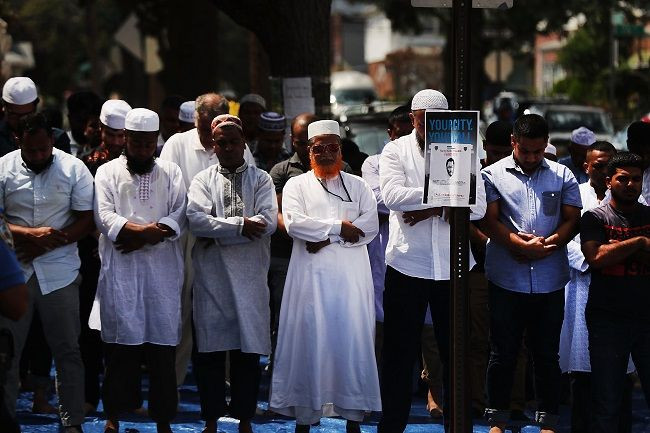Queens Imam Shooting Update: Muslim Community Questions Added NYPD Surveillance

The fallout from the murder of a local Muslim imam and his friend in Queens last week has left Muslims in the community unsure of where it stands with local authorities. Oscar Morel, a Brooklyn resident, shot and killed Maulama Akonjee and his friend Thara Uddin Aug. 13 as the two Muslin men were leaving a mosque in Ozone Park, Queens. The shootings prompted the local Muslim community to call for justice.
In the day following the shootings, CBS News reported that Muslims of the community feared for their safety.
“We feel really insecure and unsafe in a moment like this,” Millat Uddin told CBS New York at the time. “It’s really threatening to us, threatening to our future, threatening to our mobility in our neighborhood, and we’re looking for the justice.”
Morel, 35, was arrested by police the weekend of the shootings and was later charged with first-degree murder. Although the motive for the murders remains unknown, many, including the Muslim community, have called the shootings a hate crime.
Although Morel’s motive for the killings has not yet been connected to a hate crime, the Muslim community has asked for additional security from officials, especially for its mosques, the Guardian reported.
At a funeral service held for both Akonjee and Uddin, New York Mayor Bill de Blasio attended the service and addressed a crowd of hundreds that had come to honor the deceased in a Queens parking lot: “Since this horrible tragedy, the NYPD has been expending every resource and will continue to,” de Blasio assured the crowd (via The Guardian). “You will see today, and in the days thereafter, extra NYPD presence protecting our mosques and protecting the people of our Muslim communities.”
Although a relative of Akonjee’s requested, “cameras on every corner so the community can be safe,” many Muslims remain skeptical of the increased police presence and surveillance in the community.
There has been a divide between Muslim communities in New York City and the NYPD following an NYPD surveillance program of Muslim communities in 2011 that was revealed by the Associated Press.
In the investigation, AP wrote that the NYPD had compiled lists of Muslim businesses and mosques it identified as potential security risks because they endorsed conservative religious views.
In the years following the investigations, relations between the Muslim communities and the police have supposedly improved, but many still remain skeptical.
The executive director of Desis Rising Up and Moving (or Drum), Fahd Ahmed, told The Guardian that he was wary of the police and their surveillance, stating, “More electronic surveillance, a lot more surveillance through social media over the last three years since this new administration has come in,” Ahmed said, speaking of the NYPD’s surveillance program. “Those concerns around surveillance, around people’s privacy, around people’s civil rights, and around entrapment cases still remains from our perspective and our membership.”
© Copyright IBTimes 2025. All rights reserved.






















